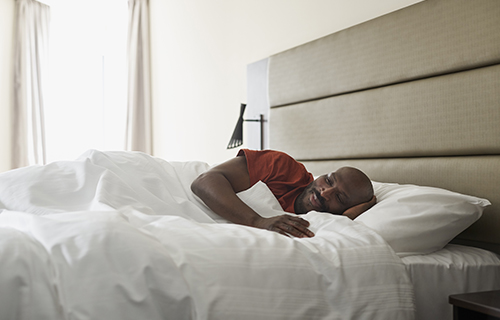
We all know that sleep is essential for health and wellbeing. And yet, due to factors such as stress, disruption to routine, or simply being too busy to prioritise rest, many people still struggle to get the recommended 7-9 hours per night. In fact, 8 in 10 UK workers feel like they don’t sleep enough. The impact of these lost hours adds up, leading to 200,000 working days lost in the UK each year as a result of poor sleep.
But it doesn’t have to be this way. With a few sensible steps, we can get UK employees sleeping better, even when they’re on the road. Here are three steps you can take, no matter where you’re sleeping, to help ensure your night is maximally restful.




